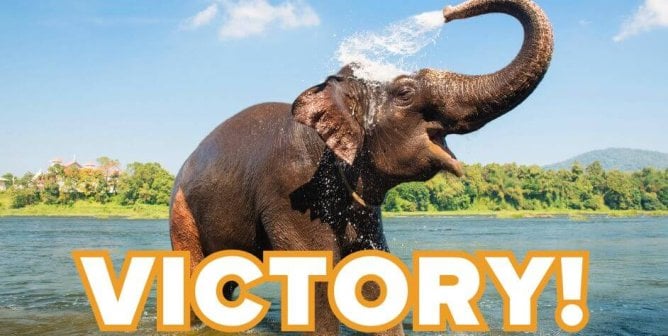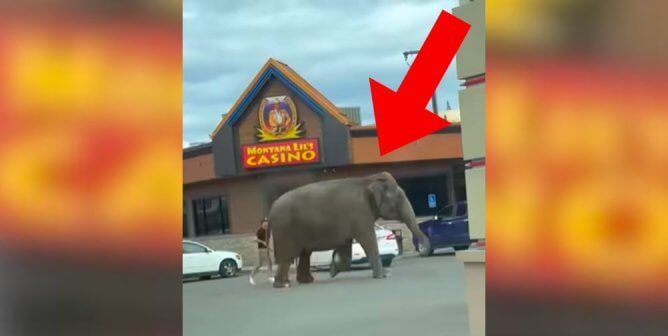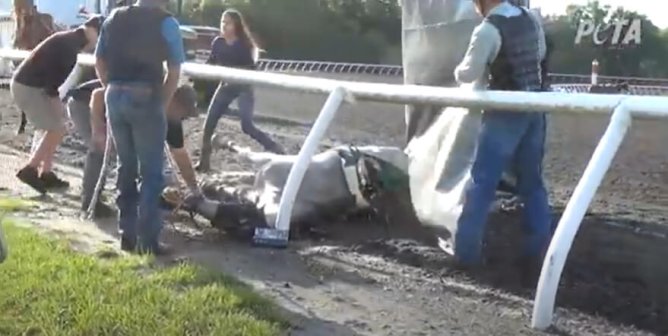From Frostbite to Heatstroke, Animals Suffer at Roadside Zoos
Roadside zoos typically operate on a shoestring budget, and operators often lack the knowledge, resources, and desire to provide quality care. Often, animals they hold are malnourished, are deprived of opportunities to exercise and socialize, and lack proper veterinary care, environmental enrichment, and mental stimulation. And based on the location of the facility and the species imprisoned there, extreme weather can pose severe issues.
Animals Suffer and Can Die as a Result of Improper Protection From Extreme Weather
Fur and feathers don’t adequately protect animals from heatstroke, sunburn, hypothermia, frostbite, and death.
Tropical animals like capuchin monkeys, coatimundis, giraffes, iguanas, and macaws are forced to shiver through vicious Midwest winters without adequate shelter. And species such as reindeer, snow leopards, Canada lynx, and arctic foxes and wolves, who thrive in cold weather, endure sweltering heat in the dry Southwest or on the humid East Coast without any means of cooling off.
Laws Don’t Protect the Animals From Suffering
The U.S. Department of Agriculture (USDA) enforces the federal Animal Welfare Act (AWA), which calls for minimal safeguards, including sufficient shade, shelter from the elements, and adequate indoor ventilation. But these regulations are so minimal that animals often fall seriously ill or die before inspectors can cite facilities for violations, and enforcement is weak. The consequences of receiving a citation are so minor that the offenders aren’t motivated to make any meaningful changes to improve the animals’ welfare. Animal exhibitors are rarely fined for infractions, and when they are, they often see it as merely the cost of doing business.
Even though reptiles and birds are often held at roadside zoos, the AWA affords them no protection. These animals are very sensitive to temperature and humidity. Reptiles rely on their environment to regulate their temperature and can get too hot and too cold, just as we can. When not at their optimal temperature, their metabolism doesn’t function well.
Many Roadside Zoos Have Received Egregious Extreme Weather-Related Citations
Windswept Ranch in California
In 2020, a witness sent PETA video footage of reindeer panting, standing in a water trough, and huddled in a small sliver of shade trying to escape the heat at Windswept Ranch. The roadside zoo is located just outside Mojave, California, where summer temperatures can reach into the low 100s. PETA submitted a USDA complaint for failure to supply adequate cooling measures and shade for the reindeer, who are meant to live on the Arctic tundra.
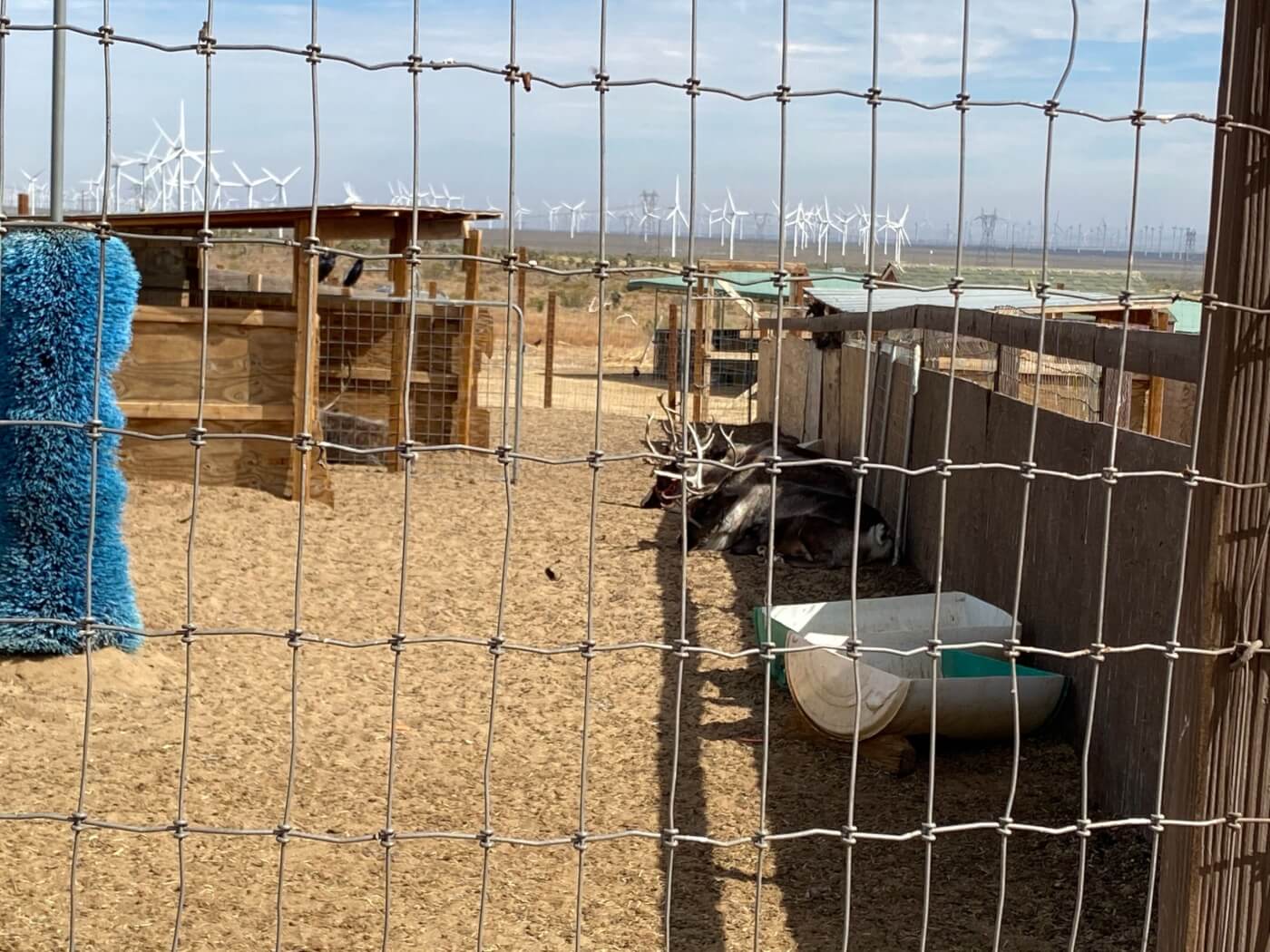
The Camel Farm in Arizona (DEFUNCT)
The USDA finally revoked the license of this deplorable roadside zoo in August 2020, after seven years of failure to provide the animals with veterinary care. The Camel Farm was located in Yuma, Arizona, where temperatures soar to over 100 degrees most of the year. It was repeatedly cited for failing to provide the animals with enough shade, leaving them to suffer in the extreme weather.
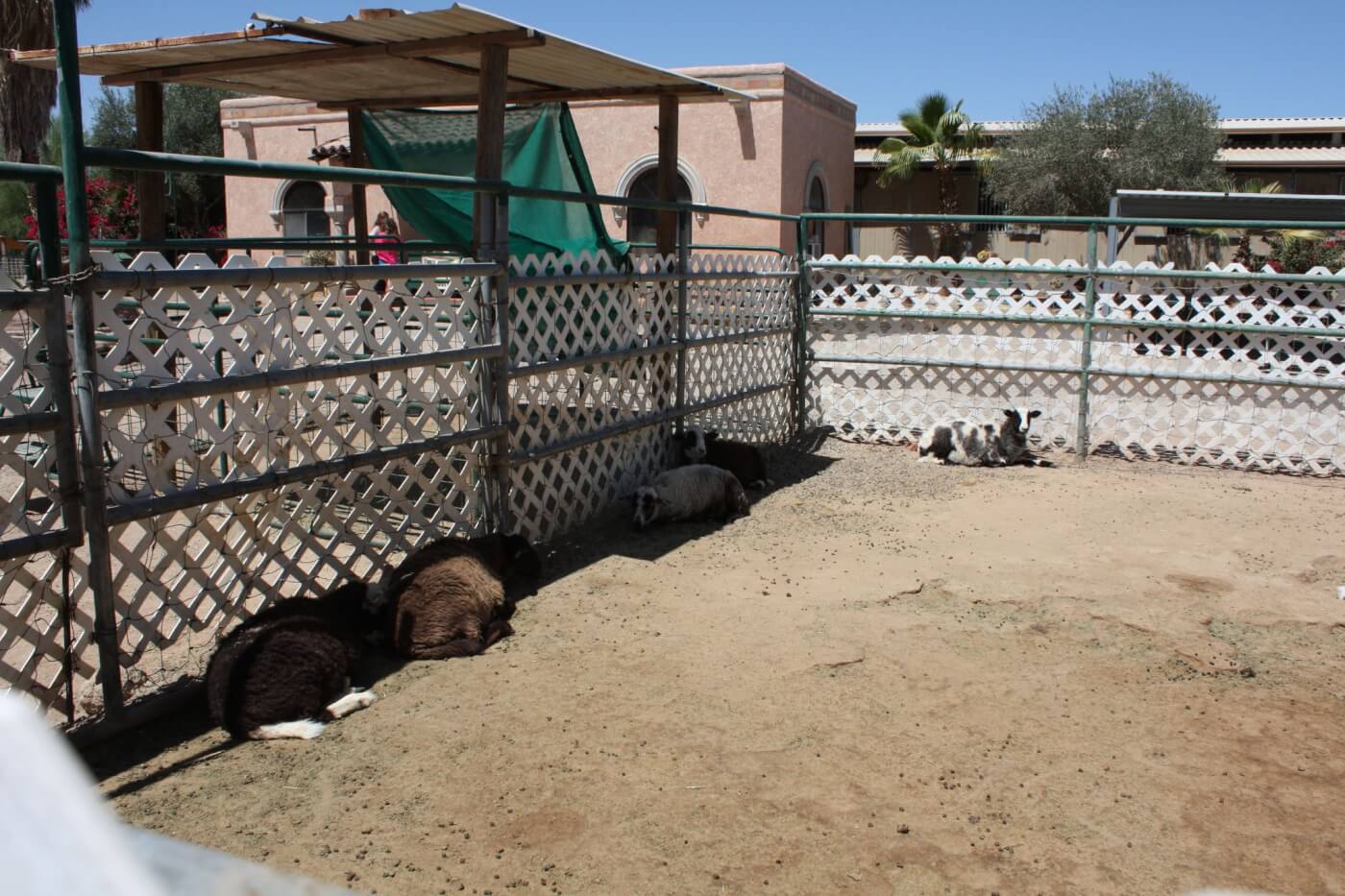
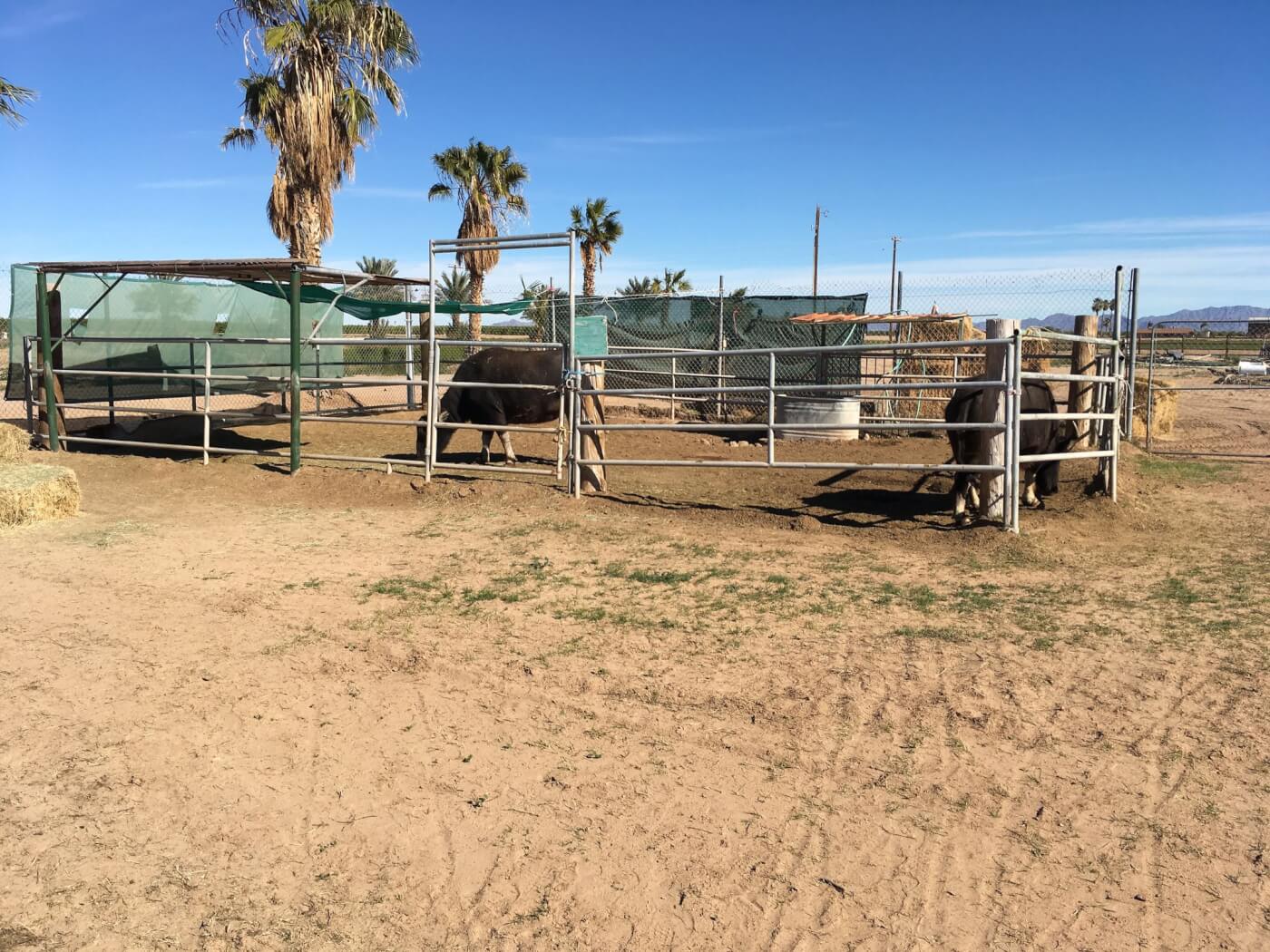
Waccatee Zoo in South Carolina
Waccatee Zoo is notorious for its neglect of a nearly bald tiger named Lila and was cited for not providing a macaque with veterinary care after he was observed licking his bare, red, frostbitten tail. A year earlier, the roadside dump had been cited for not providing multiple animals with adequate shelter when temperatures dropped below 20 degrees. The “shelters” provided had only three sides, allowing wind to enter, and some didn’t even have bedding for insulation. Others were doghouse-style, with no flaps over the door to help keep the animals warm in the extreme weather.
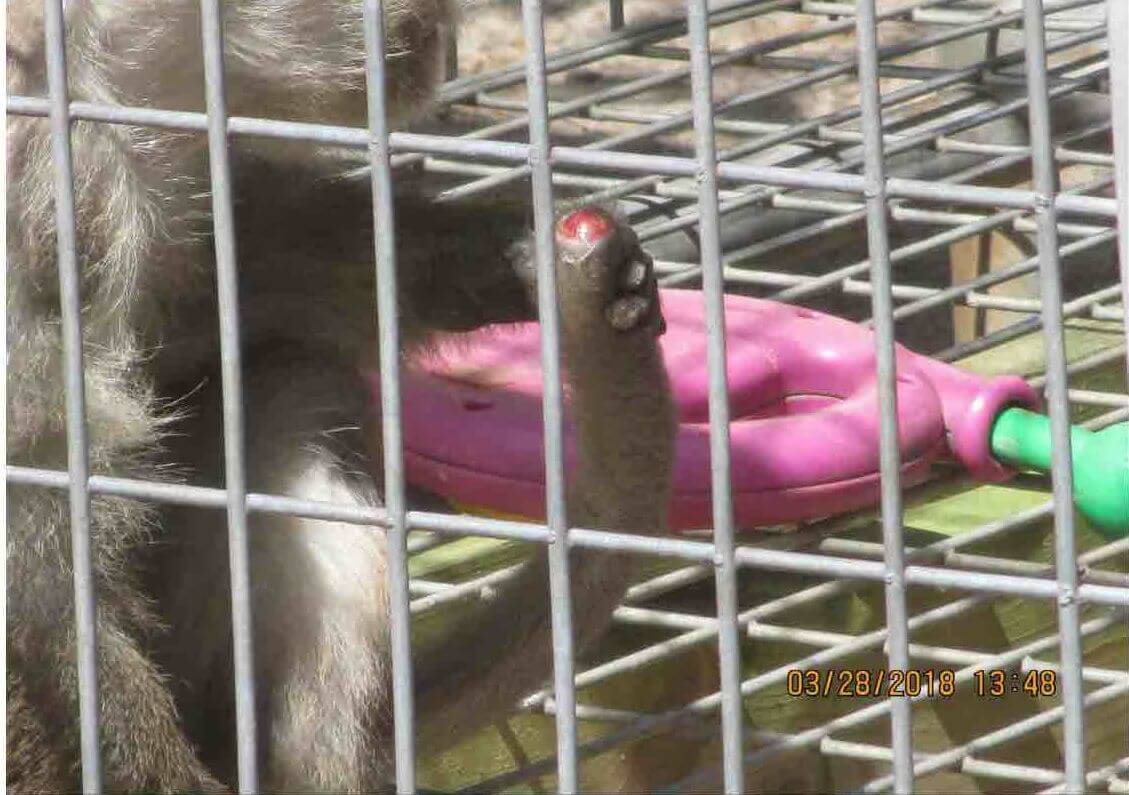
Lazy 5 Ranch in North Carolina
The USDA issued a critical citation to Lazy 5 Ranch for failing to give appropriate acclimation periods and sufficient shelter to five waterbucks—African antelopes—who died from the cold. The roadside zoo provided only one covered, three-sided shelter, and it wasn’t even large enough to house all the animals.
The USDA also cited this facility for failing to have cooling mechanisms in an indoor enclosure holding a ring-tailed lemur, even though the temperature was expected to be near 100 degrees that day.
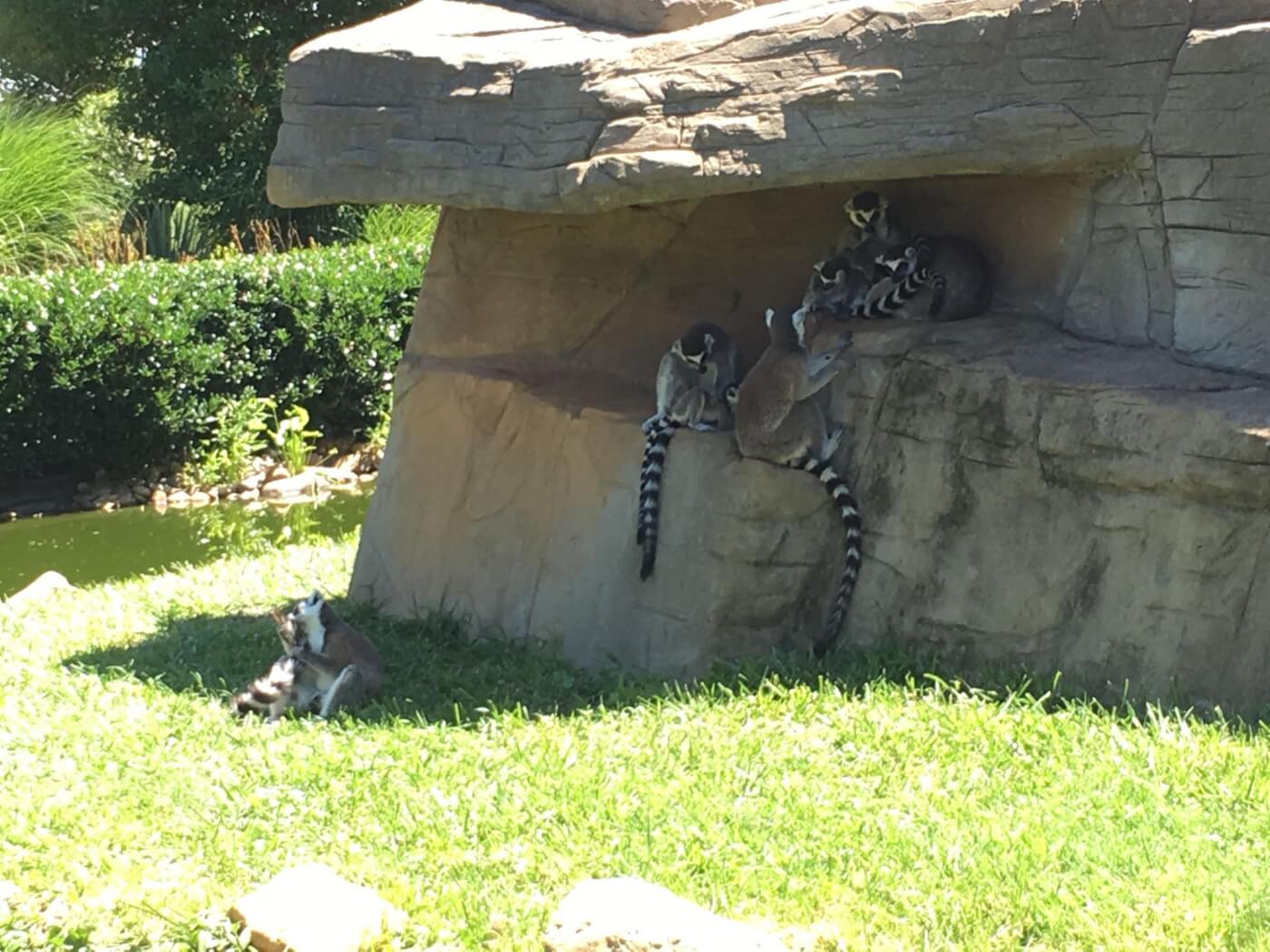
Lazy 5 Ranch was cited twice in one year for failing to shear 14 sheep who had heavy fleece in blistering heat, several of whom were seen lying on their sides and panting in extreme distress.
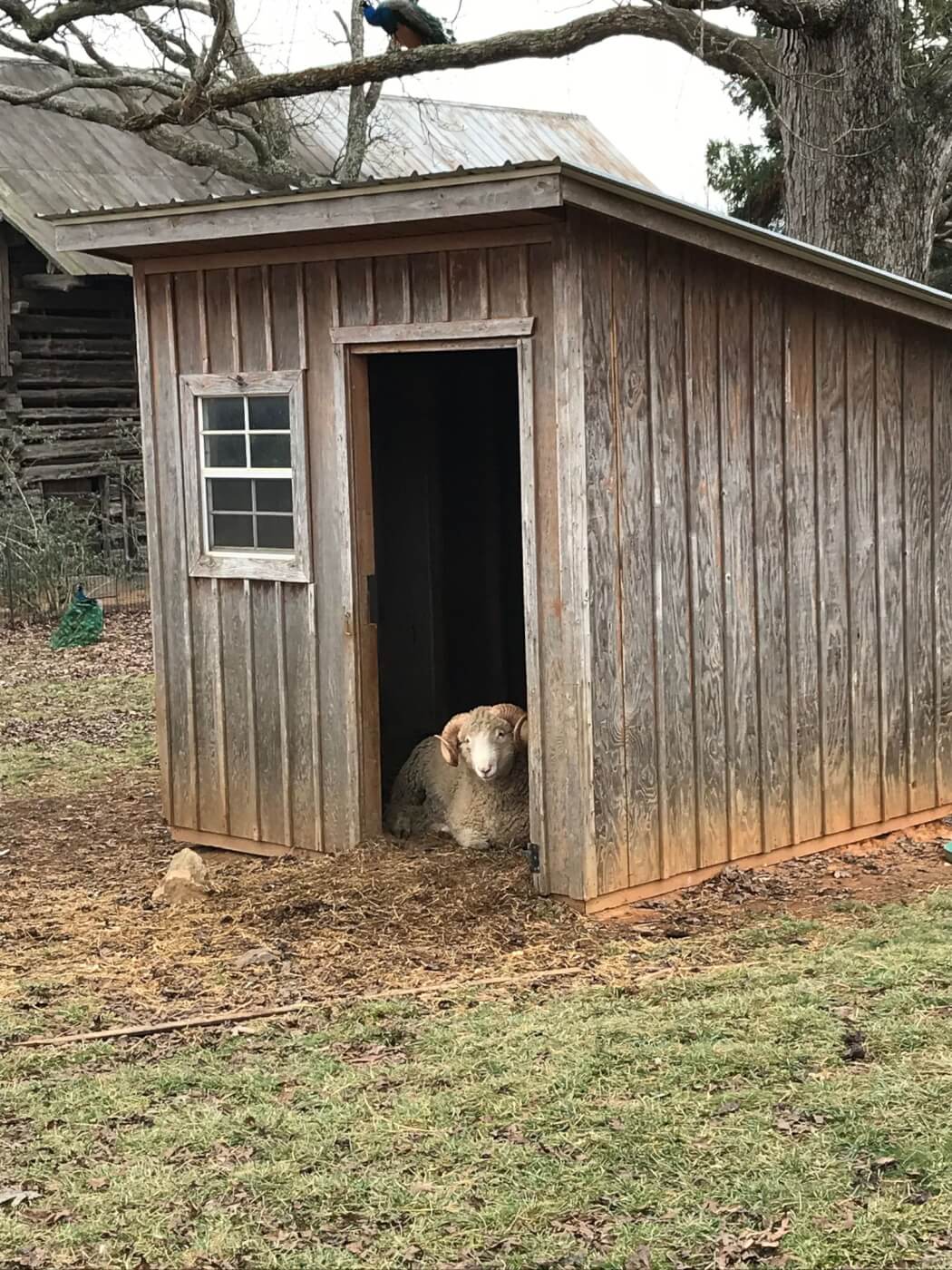
Wild Wilderness Drive-Through Safari in Arkansas
Wild Wilderness was cited twice in one month for failing to provide 25 monkeys, over half of whom were suffering from frostbite, with adequate shelter and/or veterinary care. Three baboons had only a small, unheated metal shelter measuring 2 feet by 3 feet to escape the extreme weather that winter, and 12 baboons and nine macaques had only an unheated concrete room, in which groups were seen huddled together in freezing temperatures. All 15 of the baboons had shortened tails, and the spider monkey’s hands and feet were missing tissue, exposing the bone on several fingers and toes.
These citations were part of a lawsuit filed against Wild Wilderness by the USDA, alleging 90 violations of the AWA, which resulted in a $75,000 fine and a 60-day license suspension. Wild Wilderness has received eight other citations for failing to protect animals from extreme heat and cold dating all the way back to 2001, involving bears, rabbits, baboons, macaques, lion cubs, and warthogs.
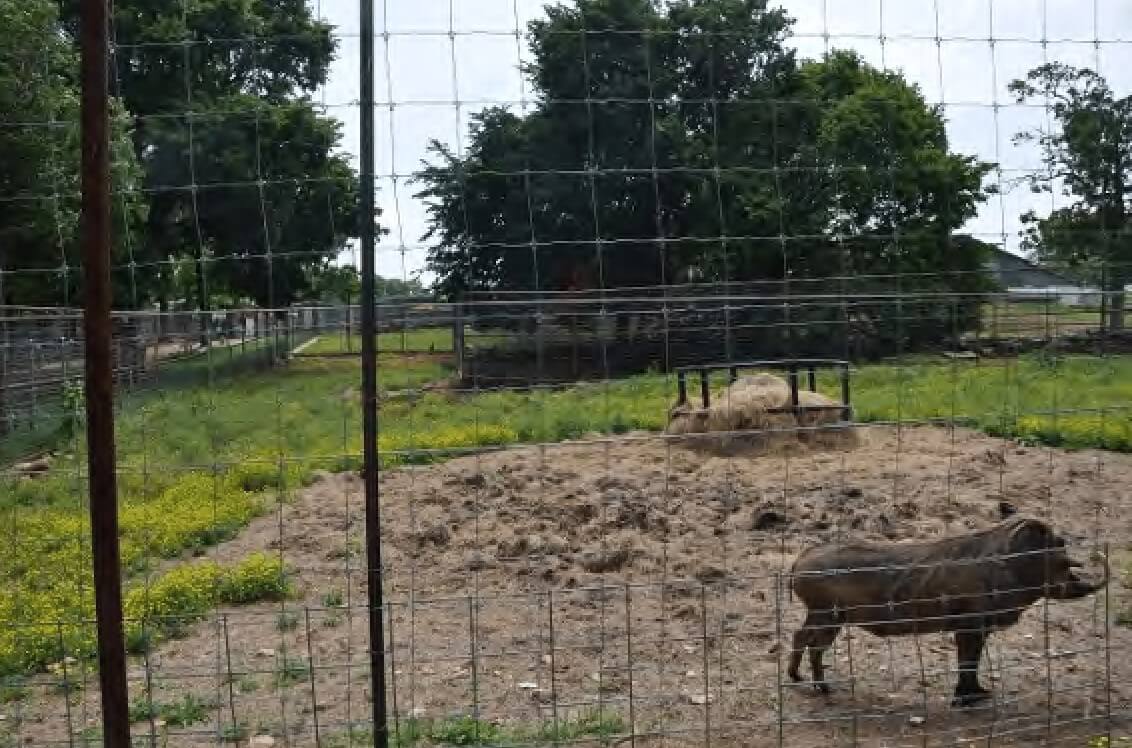
Bailiwick Ranch in New York
Bailiwick Ranch was cited by the USDA after a fox died, apparently of frostbite. The roadside zoo had failed to provide him with veterinary care, even after a staff member noticed his condition and took him indoors. Multiple animals at the facility lacked proper shelter from the cold weather.
Eric Mogensen (Virginia Safari Park and Reston Zoo) in Virginia
In 2002, the USDA cited the Virginia Safari Park for failing to provide three spider monkeys with ventilation and cooling measures in 95-degree weather. Ten years later, Jethro, a spider monkey, got frostbite after languishing for four days in below-freezing weather at the Reston Zoo. He was subsequently transferred to the Virginia Safari Park, where he was denied medical care for weeks, even though he had visible lesions on his hands and feet. Jethro had to be euthanized because of the severity of his injuries.
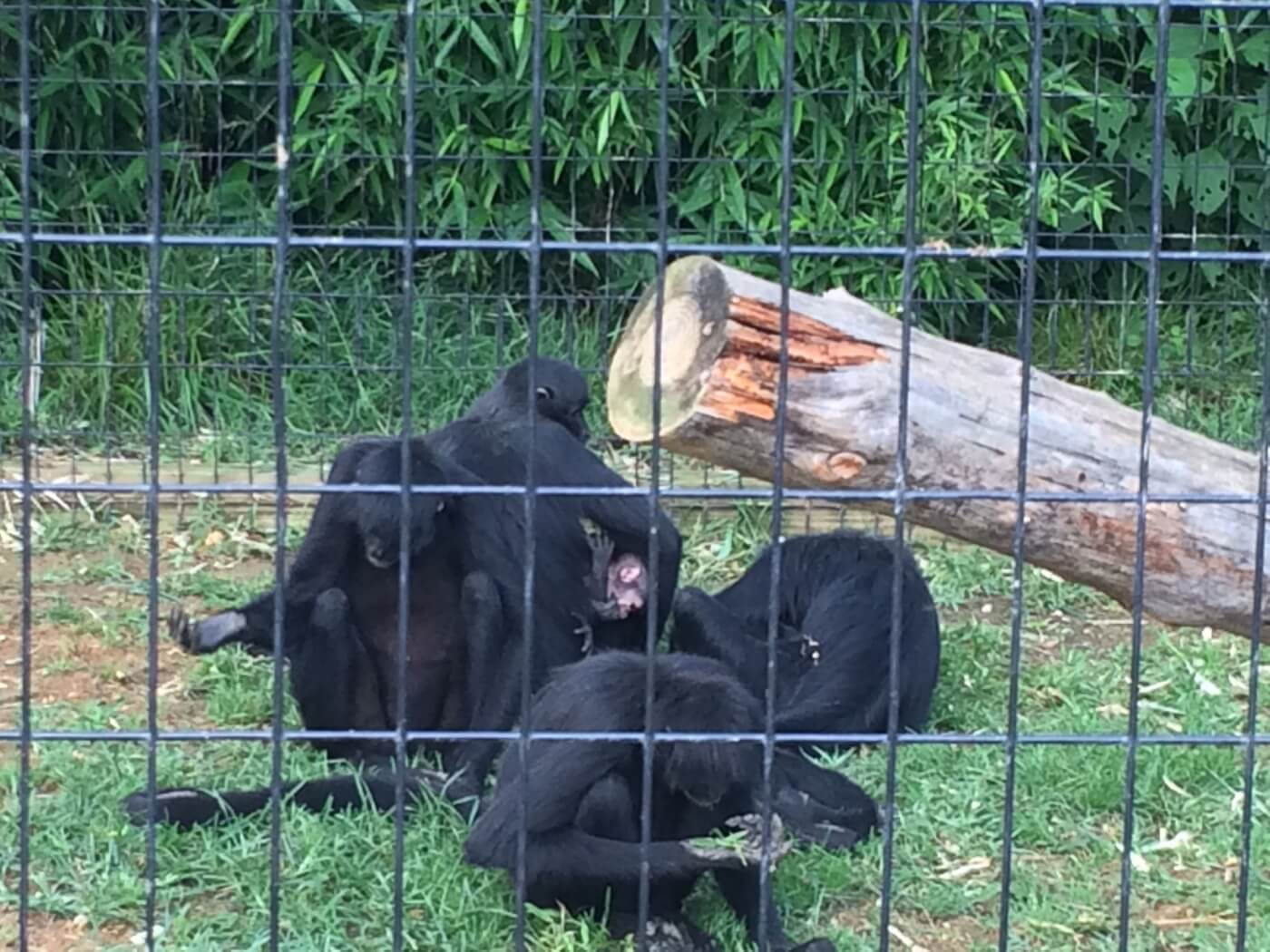
A couple of years after that, an African crested porcupine named Mr. Quills was put in an outdoor enclosure at the Reston Zoo with insufficient shelter for over four hours in subzero temperatures. He died later that day. The CEO of the roadside zoos, Eric Mogensen, was hit with a $99,999 civil penalty from the USDA for the deaths of Jethro and Mr. Quills along with many other serious AWA violations.
Barry A. Kirshner Wildlife Sanctuary in California
The USDA cited Roberta Kirshner for failing to take measures to prevent overheating and discomfort of the animals when the temperature reached 106 degrees on the day of the inspection. An infrared thermometer showed the surface temperature of the decks to be around 127 degrees. According to the inspector, many of the felines were panting and some appeared uncomfortably hot and lethargic.
The USDA fined Kirshner $5,464 for this and several other AWA violations. Her decrepit facility houses many cold-weather species—including Amur leopards, snow leopards, and wolves—in California, where summer temperatures reach the mid-90s. PETA has recent footage of Royal, the Amur leopard, panting heavily.
How to Spot and Avoid Roadside Zoos
Whenever animals are exploited—whether for experiments, food, clothing, or entertainment—their needs are secondary. Never go to a roadside zoo or marine park, and don’t trust a facility based on its name. It doesn’t matter if it has “conservation,” “sanctuary,” “wildlife park,” “reserve,” or “refuge” in its title—facilities can call themselves whatever they want, and they try to dupe the public. True sanctuaries don’t exploit animals for money.
Roadside zoos are not accredited facilities, and because of this, there is a lower standard of care. Accredited zoos and sanctuaries provide all the animals there with temperature-controlled enclosures and housing. Zoo accreditation is through the Association of Zoos and Aquariums, and sanctuary accreditation is through the Global Federation of Animal Sanctuaries (GFAS). GFAS sets rigorous standards of animal care. Sanctuaries with GFAS accreditation never breed animals or use them for encounters or performances—they exist to provide animals with refuge and lifelong care.
Imprisoning living beings for human entertainment is speciesist, and it must stop. We won’t back down until every roadside zoo is closed and all the animal victims are transferred to accredited facilities where they can have some semblance of a peaceful life.
